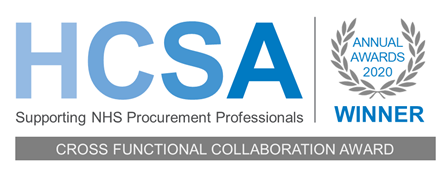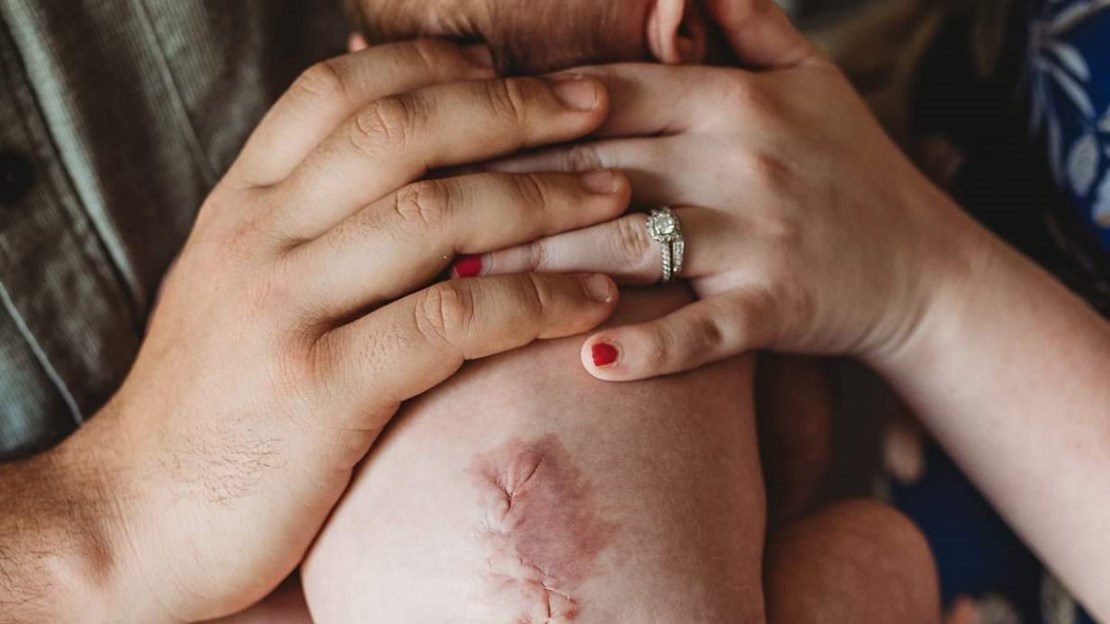When NHS England Highly Specialised Commissioning sought to establish a service to provide pioneering prenatal surgery for foetuses with open spina bifida, a collaborative procurement project with NHS Arden & GEM CSU was initiated.
Based on trust, transparency and engagement, the multidisciplinary project group successfully co-designed and delivered a service model and procurement strategy to appoint two specialist providers for this complex procedure. Up to the end of March 2020, six surgeries have already been undertaken, which will have a transformative impact on the lives of babies and their families.
The challenge
Spina bifida occurs when a baby’s spine and spinal cord do not develop properly in the womb, causing a gap in the closing of the spine. The exact cause is unknown, but several factors are associated with the condition, including insufficient folate in the diet or hereditary factors.
In some circumstances, surgery can be carried out to close or cover the spina bifida lesion before birth. This is extremely complex surgery which involves opening the uterus, closing the open spina bifida lesion then repairing the uterus.
The challenge was to develop and implement an NHS service model to deliver successful, high-quality outcomes for patients using the newly approved service specification. To achieve this, providers offering appropriate quality, expertise and experience were needed; a difficult task given experience across potential centres in the UK was scattered with patients historically sent overseas for treatment.
Our approach
NHS England Highly Specialised Commissioners and Arden & GEM collaborated to establish a project group and jointly design the procurement strategy for this new service.
Collaboration
Our multidisciplinary project group comprised:
- Two patient representatives, who actively participated in all stages of the process, keeping patients at the heart of service provision
- Clinical advisors, commissioners, procurement and communications leads, and experts in finance, contracting, quality, information governance, paediatric neurosurgery and fetal medicine
- An international expert in spina bifida surgery to provide invaluable input and global best practice.
"This was an important project for NHS England because it made available an evidence-based, ground-breaking intervention for women improving outcomes for their babies. The service model combined international expertise while allowing the development of a service in England. It was a great collaborative effort from everyone involved."
Fiona Marley, Head of Highly Specialised Commissioning at NHS England
Project governance
We developed relationships with key decision-makers, including national NHS England directors, with all strategic decisions endorsed by the NHS England Specialised Commissioning Oversight Group.
We jointly developed a Project Initiation Document detailing project scope, objectives, governance, roles, responsibilities, risks, conflict of interests and timescales. During monthly Project Group meetings, we shared documents and sought input on strategies, issues and procurement questionnaires. The high level of involvement and transparency promoted teamwork and built trust within the group.
Market engagement
We hosted a dedicated market engagement session for interested providers to share our procurement intentions and open dialogue. We encouraged questions to improve our understanding of the market and test assumptions. This helped clarify clinical pathways, capacity for cross-cover and clinical competence. We shared procurement tips and organised a session to discuss common bid mistakes to give centres the best possible opportunity to make an informed submission.
Procurement strategy
Due to the small number of cases in scope to be operated on each year, the need to maintain expertise, and the short gestational window for surgery, we needed to select an appropriate number of Fetal Surgery Centres (FSCs) to undertake this complex procedure.
Following analysis of clinical, financial and market considerations, we developed a service model suggesting two FSCs. Collaboration between both FSCs and regional networks was essential for developing and maintaining expertise, a requirement built into the procurement questionnaires and evaluation criteria.


This project won the Best Collaborative Teamwork Project category at the CIPS Excellence in Procurement Awards 2020 and the Cross Functional Collaboration category at the HCSA Awards 2020.
The outcomes
Thanks to strong leadership and excellent internal and external collaboration, the project was completed in less than one year – from initial discussions to contract implementation – to deliver the following:
- Two specialist centres have been successfully appointed to provide high quality surgery to women carrying a fetus with open spina bifida
- By selecting a centre in London and a centre in Belgium, a good balance between service quality and providing care close to patients has been achieved
- A wide programme of education has been offered to referring clinicians and their teams to build first-hand local experience and expertise
- The project delivered six surgeries between November 2019 and March 2020 to women in England and Northern Ireland, with a transformative impact on quality of life for their babies and families
- Outcomes are regularly monitored via contract mobilisation meetings and contract management.
"I had fetal surgery in 2019 to repair the defect on my unborn baby’s spine. We were told Max had around a 20% chance of walking with aids but would most likely have no movement or feeling from the waist down and be in a wheelchair full time. My local Fetal Medicine Unit were extremely knowledgeable and referred me to UCLH straight away for pioneering surgery. Max has absolutely thrived since surgery. He has full feeling and movement all the way to his toes, the fluid on his brain has remained stable and he has full control of his bladder and bowels. We don't know what Max's abilities would have been had we not had the surgery, but we know it absolutely gave him the best chance to thrive."
Parent who underwent surgery in 2019
Hear more from Highly Specialised Services Commissioning Manager, Bernie Stocks:
